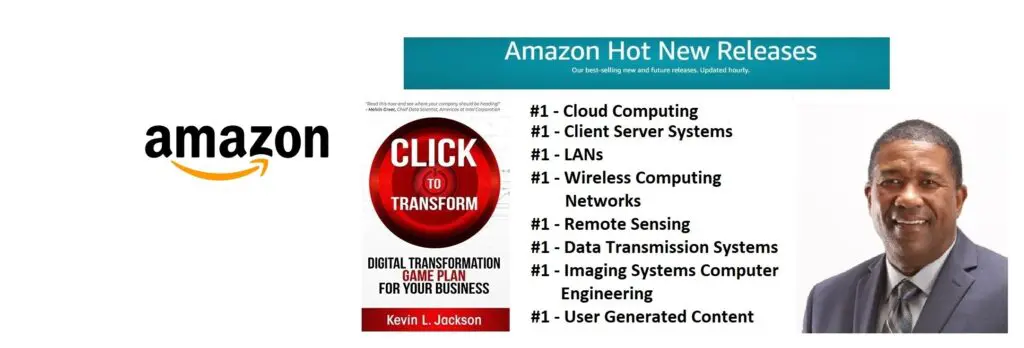Twitter Feed
SOA is Dead; Long Live Services
Blogger: Anne Thomas ManesObituary: SOA“SOA met its demise on January 1, 2009, when it was wiped out by the catastrophic impact of the economic recession. SOA is survived by its…
2009 – The Year of Cloud Computing!
Yes, everyone is making this bold statement. In his article, David Fredh laid out the reasons quite well: The technological hype has started already but the commercial breakthrough will come…
Salesforce.com and Google expand their alliance
In a Jan. 3rd announcement, Salesforce.com announced an expansion of its global strategic alliance with Google. In announcing the availability of Force.com for Google App Engine™, the team has connected…
December NCOIC Plenary Presentations
Presentations from the NCOIC Cloud Computing sessions held earlier this month have been posted on-line in the Federal Cloud Computing wiki. The event featured speakers from IBM, Cisco, Microsoft, HP,…
Booz|Allen|Hamilton Launches “Government Cloud Computing Community”
As a follow-up to a Washington, DC Executive Summit event, BoozAllenHamilton recently launched an on-line government cloud computing collaboration environment. In an effort to expand the current dialog around government…
Is Google Losing Document?
John Dvorak posted this question on his blog Saturday and as of Sunday evening had 52 responses! This is not a good thing for building confidence in cloud computing. Or…
Cryptographic Data Splitting? What’s that?
Cryptographic data splitting is a new approach to securing information. This process encrypts data and then uses random or deterministic distribution to multiple shares. this distribution can also include fault…
NPR “All Things Considered” considers Government Cloud Computing
My personal thanks to Andrea Seabrook, Petra Mayer and National Public Radio for their report “Will ‘Cloud Computing’ Work In White House?” on today’s “All Things Considered”. When I started this blog…
HP Brings EDS Division into it’s cloud plans
The Street reported earlier this week that Hewlett Packard’s EDS division has won a $111 million contract with the Department of Defense (DoD) that could eventually support the U.S. military’s…
4 Factors Driving Digital Transformation ROI
The critical assessment factors for cloud ROI risk probability are the following:
- Infrastructure utilization
- Speed of migration to cloud
- Ability to scale business/mission processes
- Quality delivered by the new cloud-based process
These four factors directly drive digital transformation ROI because they affect revenue, cost, and the time required to realize any investment return. Differences between actual and projected values in these metrics indicate a likely failure to achieve the desired goals.
Although business alignment is always a primary digital transformation drive, ROI remains a key decision component. This metric should, however, be addressed from multiple vantage points to include cloud workload utilization, workload size versus memory/processor distribution and the virtual hardware instance to physical asset ratio.
Value delivered through innovation should also be part of the business value calculation. Value can be delivered through operational cost reductions, optimization of resource capacity, and a reduced total cost of ownership. Business process time reductions, product quality improvements and customer experience enhancements are also useful outcomes.
Security Controls
Business/mission model changes can also introduce operational risk. Acceptance of these risk are based on executive risk tolerance. Their risk mitigation decisions result in the implementation of security controls. A control will restrict a list of possible actions down to what is allowed or permitted by the organization. Encryption, for example, can be used to restrict the unauthorized use of data.
The security control continuum extends over three categories:
- Management (administrative) controls: policies, standards, processes, procedures, and guidelines set by corporate administrative entities (i.e., executive to mid-level management)
- Operational (and physical) controls: operational security (execution of policies, standards and process, education, and awareness) and physical security (facility or infrastructure protection)
- Technical (logical) controls: Access controls, identification and authentication, authorization, confidentiality, integrity, availability, and non-repudiation
They also encompass the following types:
- Directive controls: often referred to as administrative controls, advise employees of the behavior expected of them during their interfaces with or use of information systems
- Preventive controls: include physical, administrative, and technical measures that preclude actions that violate policy or increase the risk to system resources
- Deterrent controls: use warnings and a description of related consequences to prevent security violations
- Compensating controls: Also called an alternative control, a mechanism that is put in place to address security requirements deemed impractical to implement
- Detective controls: Refer to the use of practices, processes, and tools that identify and possibly react to security violations
- Corrective controls: involves physical, administrative, and technical measures designed to react to a security-related incident in order to minimize the opportunity for an unwanted event to reoccur
- Recovery controls: restore the system or operation to a normal operating state once integrity or availability is compromised
The costs associated with the implementation of any security control should be weighed against the value gained from digital transformation business/mission process improvements.
Would you like to learn more about digital transformation innovation? Pick up a copy of my new book, Click to Transform!Â

Cloud Computing
- CPUcoin Expands CPU/GPU Power Sharing with Cudo Ventures Enterprise Network Partnership
- CPUcoin Expands CPU/GPU Power Sharing with Cudo Ventures Enterprise Network Partnership
- Route1 Announces Q2 2019 Financial Results
- CPUcoin Expands CPU/GPU Power Sharing with Cudo Ventures Enterprise Network Partnership
- ChannelAdvisor to Present at the D.A. Davidson 18th Annual Technology Conference
Cybersecurity
- Route1 Announces Q2 2019 Financial Results
- FIRST US BANCSHARES, INC. DECLARES CASH DIVIDEND
- Business Continuity Management Planning Solution Market is Expected to Grow ~ US$ 1.6 Bn by the end of 2029 - PMR
- Atos delivers Quantum-Learning-as-a-Service to Xofia to enable artificial intelligence solutions
- New Ares IoT Botnet discovered on Android OS based Set-Top Boxes
